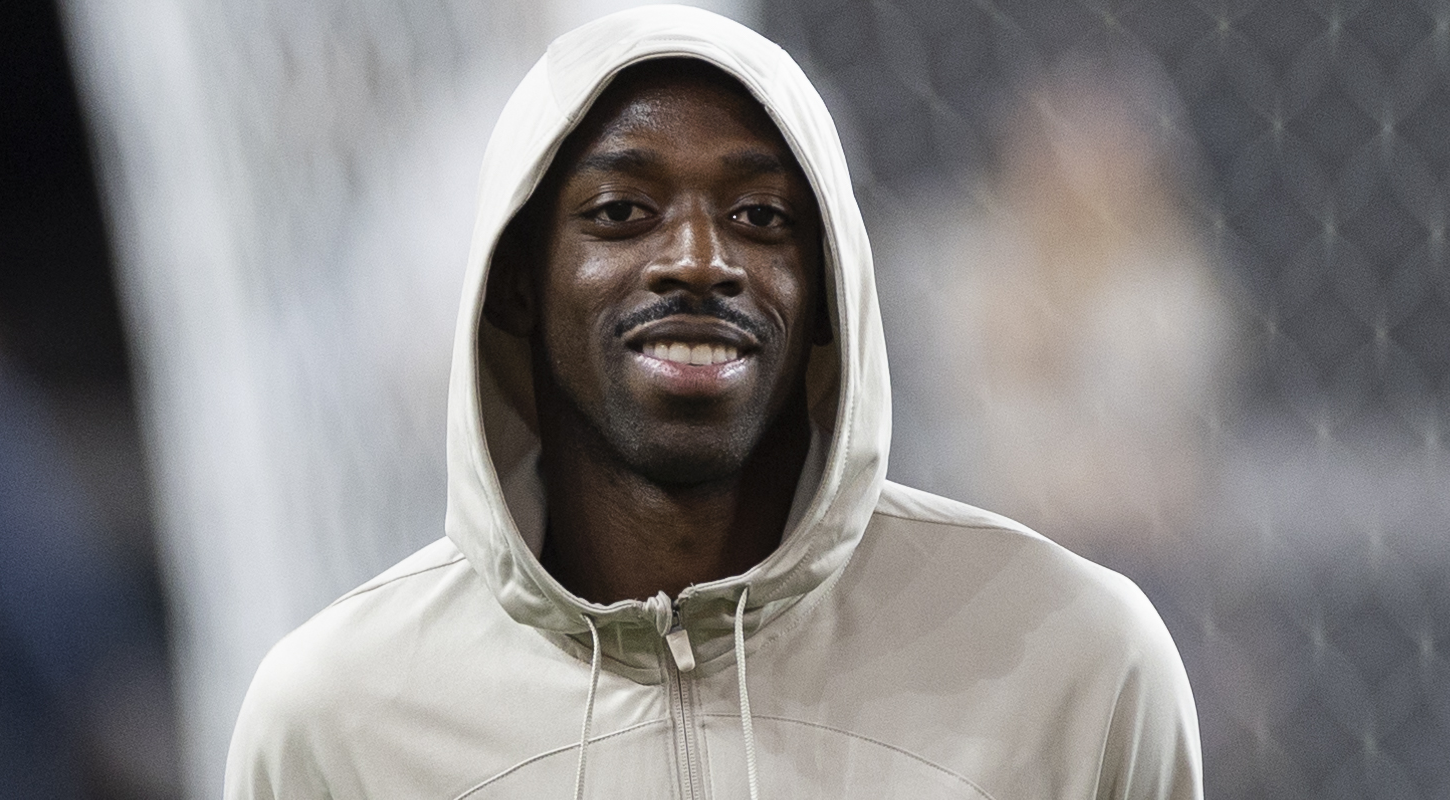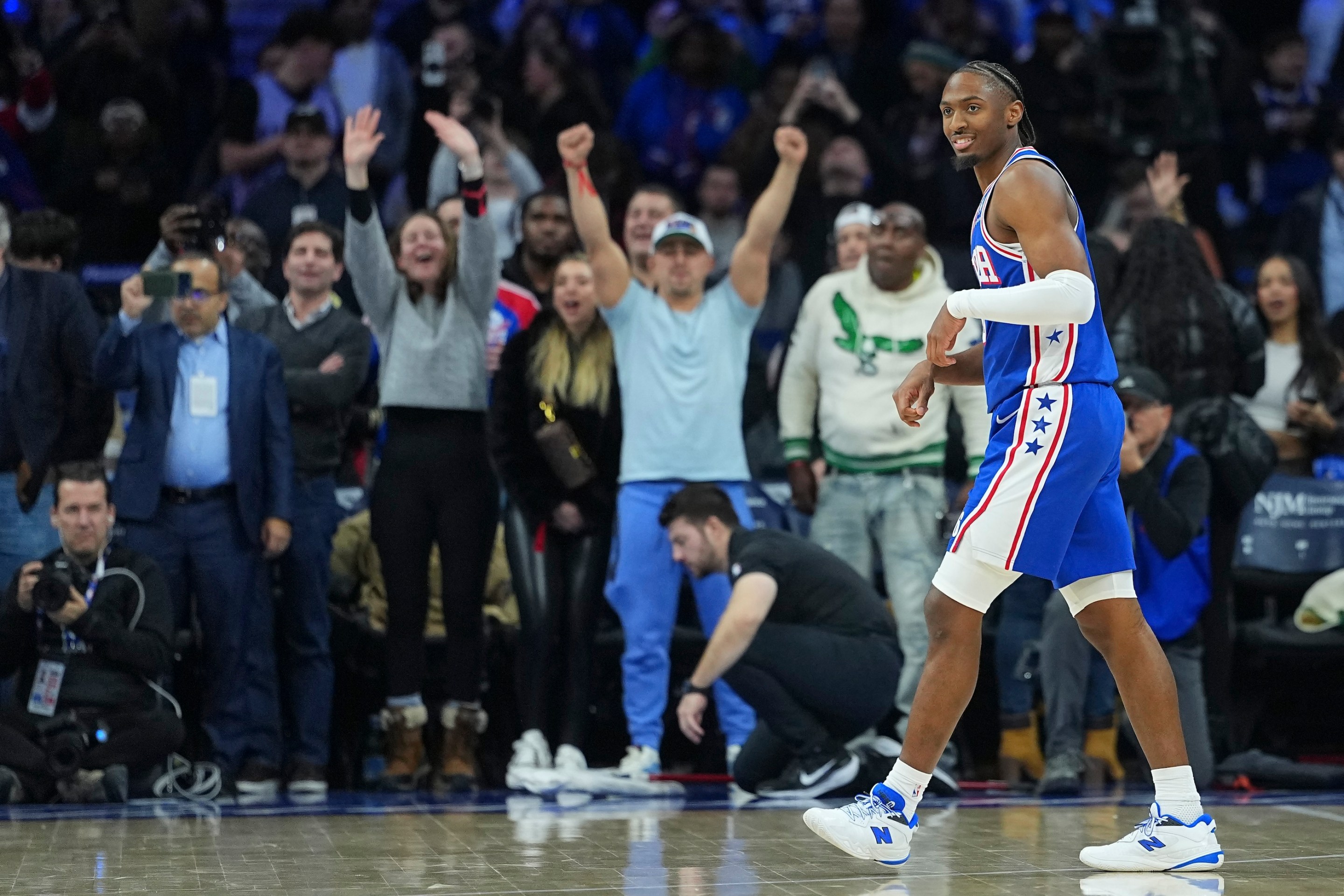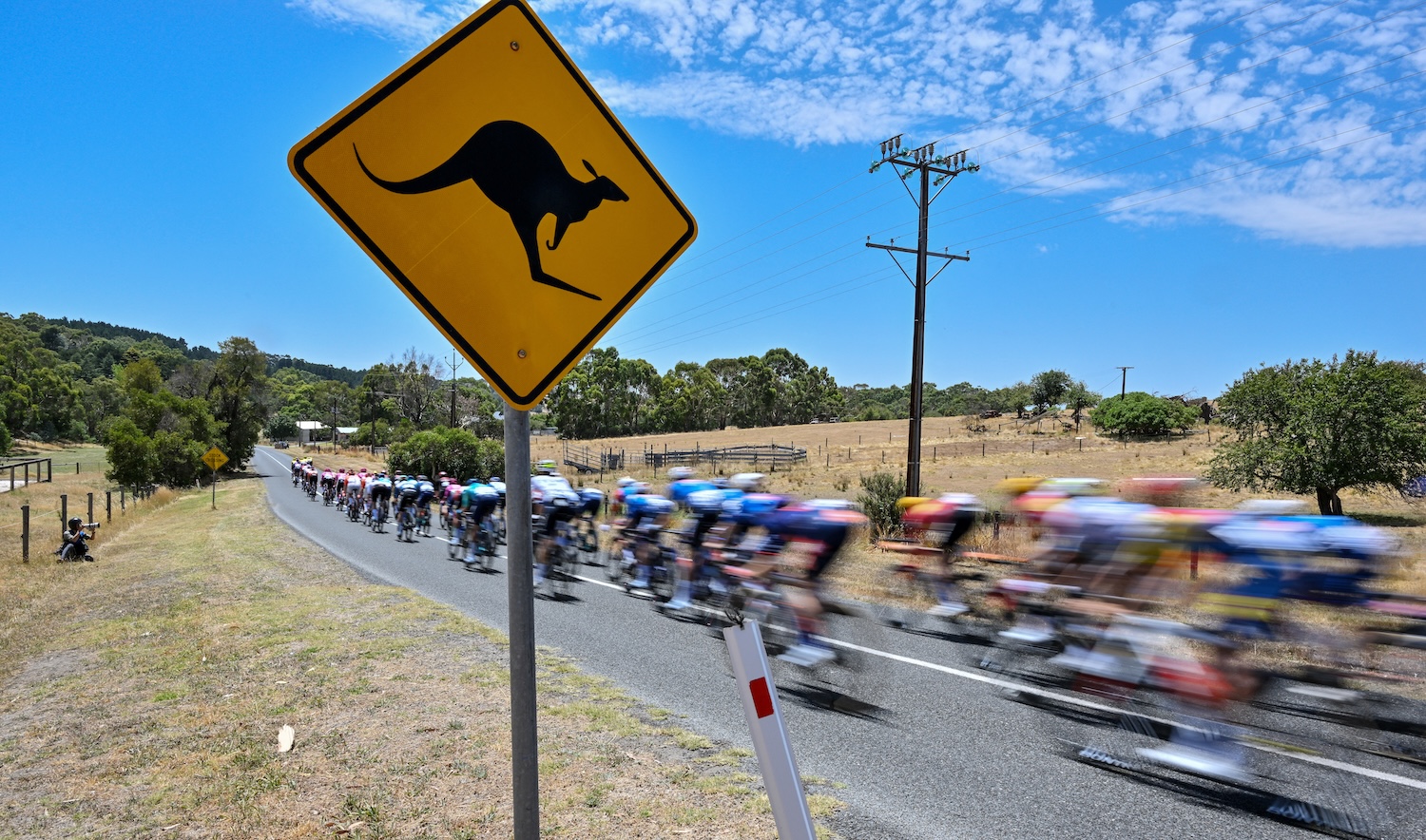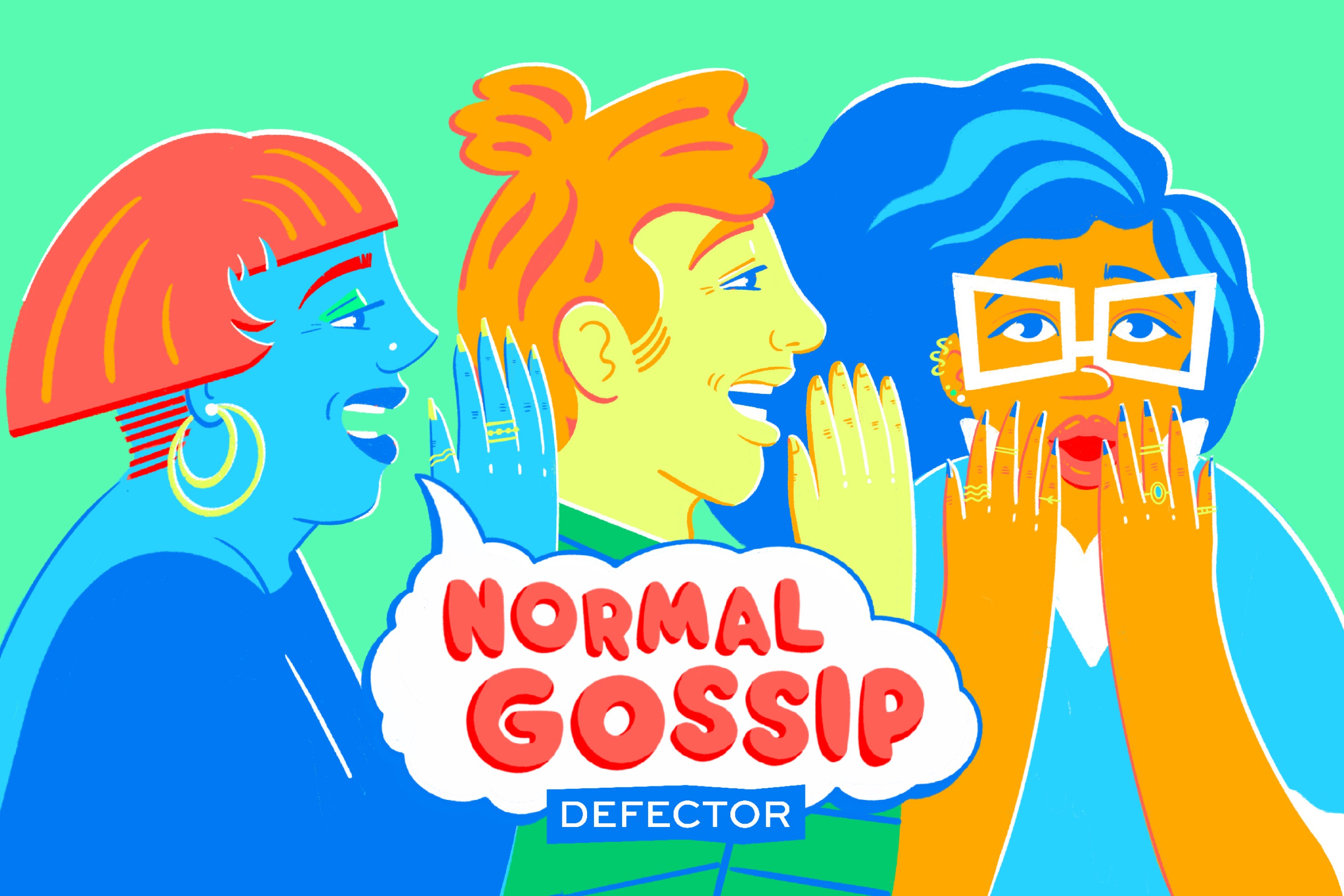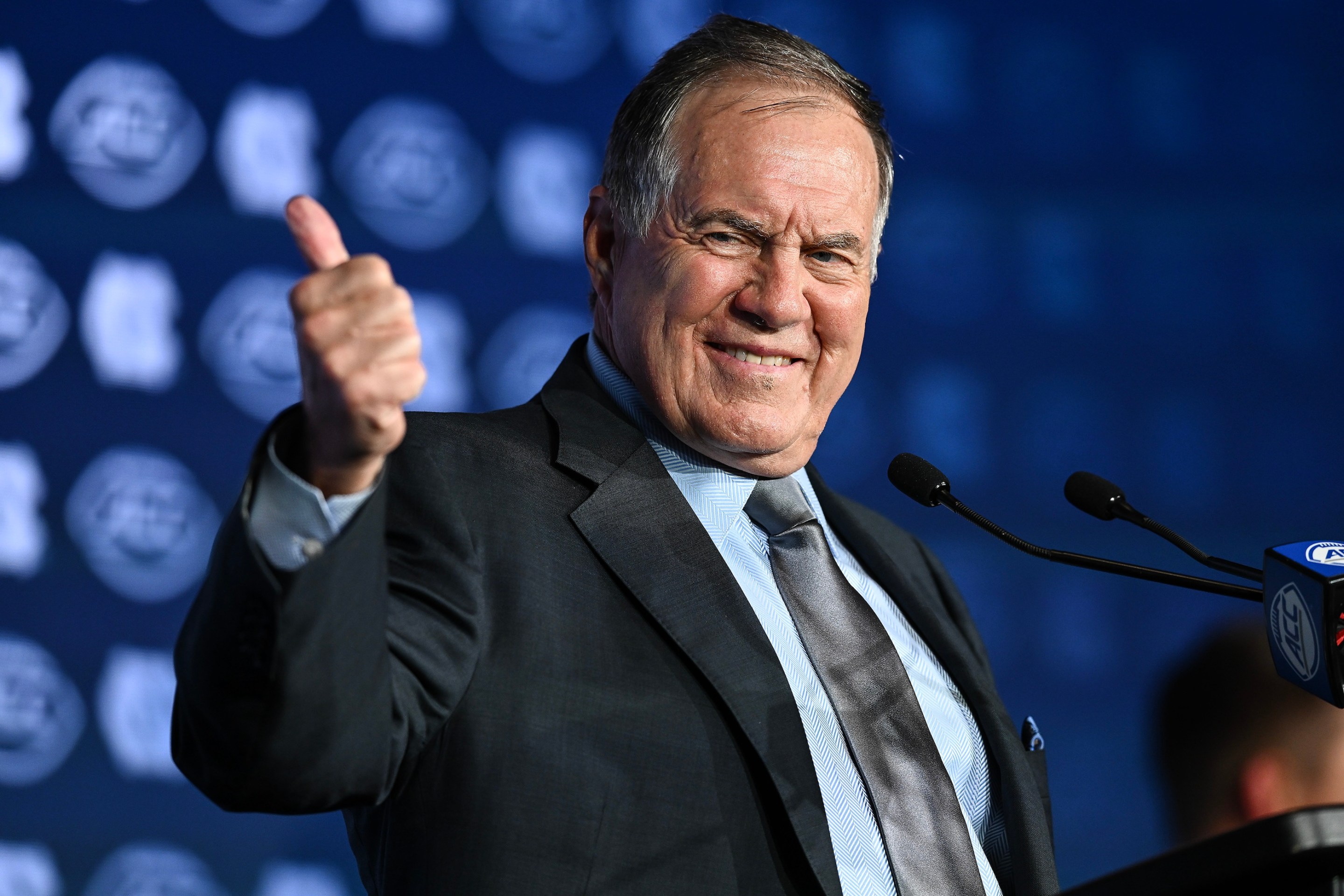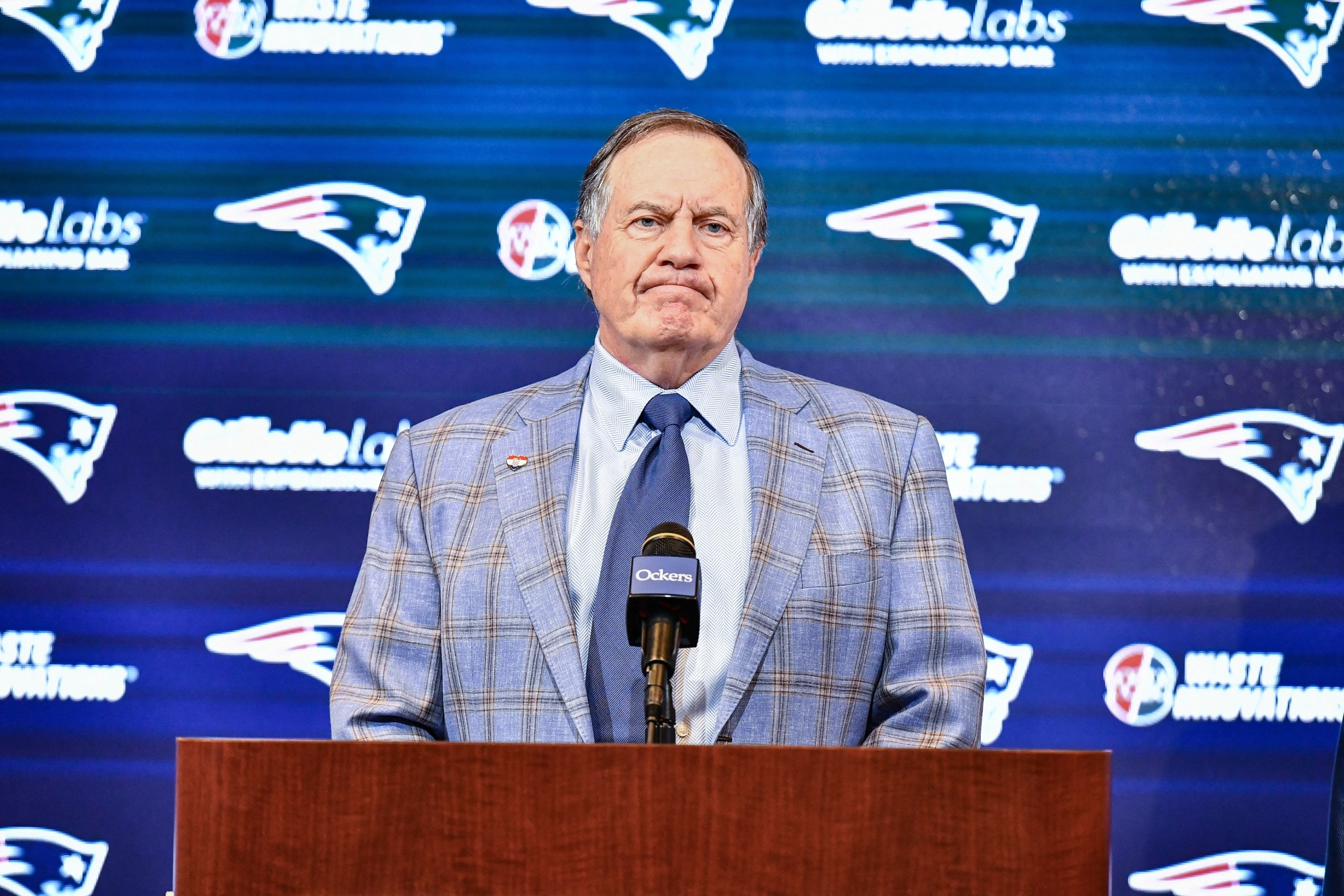When anonymously sourced reports first appeared in the French media, in the last week of July, claiming that Barcelona winger Ousmane Dembélé was close to leaving for Paris Saint-Germain via the €50 million release clause in his contract, it seemed preposterous. The easiest read, at first, was that it had to be shit-stirring by Dembélé's agent, Moussa Sissoko, to pressure Barcelona into a more accommodating attitude in extension talks. But, it turned out, it was true.
Bedeviled by injuries and inconsistency in the years since Barça paid over €100 million to acquire him from Borussia Dortmund, Dembélé seemed finally to have found stable—for him, anyway—health over the 2020-21, 2021-22, and 2022-23 seasons. Along with that he'd established himself at last, both as one of the world's most dangerous attackers with the ball at his feet and as one of manager Xavi's explicit favorites. In a summer, and a ruinous financial condition, in which Barcelona would have to be at the very least willing to sell virtually any player (or organizational subsidiary, or piece of office furniture) with serious suitors, the club put the message out through all its various mouthpieces that, on Xavi's insistence, Dembélé was among the team's very few untouchables.
But it hadn't always been that way. In the summer of '22, with the club's finances in a similar state of catastrophic emergency, Barcelona's leadership waged an ugly public pressure campaign against Dembélé, with the goal of coercing him into either signing a contract extension with a lower salary figure or accepting an immediate transfer. At the time, Dembélé's existing contract both paid him a salary far beyond the club's current budget and was due to expire in the summer, and Barcelona couldn't risk losing one of its best and most valuable players—and someone whose gaudy transfer price played no small part in wrecking the club's finances—for nothing. The sides eventually worked out a stopgap agreement: Dembélé extended his contract through the summer of 2024, with the understanding that the parties would use the additional time to negotiate the terms of a longer extension to be finalized the next summer.
That ugly fight—during which sporting director Mateu Alemany notably decreed that Dembélé would be exiled from the squad until he relented to the club's demands, in a foreshadowing of this summer's fight between PSG and Kylian Mbappé—didn't just disappear from memory when the two sides signed the contract extension. It now seems to have lingered in Dembélé's mind, as anyone might have guessed it would; moreover, in hindsight everybody should have expected it would sour Dembélé's feelings toward the club, possibly up to forever.
🚨 Dembélé's reasons for leaving Barcelona:
— barcacentre (@barcacentre) August 4, 2023
- Keeping him out of the squad in 2022 as a measure of pressure for him to renew.
- The arrival of Deco, who was Raphinha's agent.
- The belief of rumours saying he was going to be offered to PSG alongside Gavi for Mbappé.
- The… pic.twitter.com/lJEDrhwGQt
Ordinarily none of this might matter, at least as far as the question of where Dembélé would play this coming season. He had a contract, freshly extended, making him a Barcelona player, and the club (so far as anybody has reported) had no intention of parting with him. Under ordinary circumstances, even if Dembélé had made public a desire to leave this summer, Barça could have expected to set the terms by which he'd get his wish. That's typically how this works.
But that contract turns out to have had at least one funny provision in it: a €50 million release clause—a bargain for a player of Dembélé's age (26), profile (a true two-footed winger with racehorse speed and the proven ability to produce both goals and assists), and prominence within Xavi's squad—that would automatically increase to €100 million if nobody executed it by July 31 of this year. Or, well, that appears to be how the club understood the clause. It's certainly how all the club's attendant press described it during all the months of reporting around extension negotiations: a €50 million release clause that would double in value on August 1.
It now appears that somebody (or several somebodies) inside Barcelona failed to do the reading. What Dembélé actually had, we now know, was a €100 million release clause, and also an entirely separate "contract of transfer obligation" that would compel Barcelona to accept any bid of €50 million that Dembélé agreed to, provided it arrived before that July 31 deadline. As the Athletic's Po Ballús reported:
Whereas the €100 million release clause would have to be triggered through an official and more complicated process involving La Liga—which holds Dembele’s registration—this “contract of transfer obligation” simply compelled Barça to accept any bid of €50m. Not everybody at the Catalan club realized this, and that is why there was such confusion at the weekend.
The Athletic
That might not be a huge distinction. But this "contract of transfer obligation" effectively renders the €100 million release clause entirely ornamental. That's not even the funniest part! Here is the funniest part: In the event Dembélé executed this provision, and brought in a €50 million bid by July 31, the contract of transfer obligation "would see Barça receive half of the €50 million and the player the other €25 million."
Wait, here, let's give this the appropriate weight.
The contract of transfer obligation "would see Barça receive half of the €50 million and the player the other €25 million."
That is to say, Barcelona negotiated a contract with its most valuable attacker, its manager's tactical lynchpin, in which not only could any club out there have him for far less than Barcelona would consider fair value, but Barcelona itself would receive only half that sum—would be compelled, contractually, to part with that player for only a little more money than Manchester City is getting in return for academy kids with zero meaningful first-team experience. Moreover Dembélé himself, in the event another team made him a sufficiently enticing salary offer, could earn himself a quick €25 million commission in return for forcing Barcelona to eat this shit sandwich. And—and!—on top of that, nobody at Barcelona apparently understood these facts, about a contract the club itself negotiated and signed.
Apart from the "not understanding a contract it agreed to" bit, this was a more-or-less willing concession on the club's part, granted in exchange for Dembélé agreeing to a lowered salary at a time when Barcelona had desperate need to shrink its wage bill. The existence of the provision, appalling as it might seem, reflects the club's dire circumstances, and as such is understandable and not really deserving of criticism. It's the "not understanding a contract it agreed to" bit that reflects much the same contemptible mixture of hubris and incompetence that created those dire circumstances in the first place.
For years Barcelona operated as though més que un club exempted it from having to care about details and consequences, about competence, about costs and proportions and amortization and all else—like the stereotype of the profligate jock saying yes to every second-cousin-once-removed's cockamamie steamboat restaurant pitch because he can't conceive of the gigantic paychecks drying up while he's still a young man with decades of bill-paying ahead of him. The club could splash a hundred million euros buying this or that star player without a solid plan for his use, get nothing out of him, bury him on the bench, and splash another hundred million euros on his replacement. It could leave a trail of incinerated money and alienated players in its wake; everybody would still want to come there, and stay there, and prove themselves equal to the shirt.
COVID-19 punctured the club's fantasy of financial invincibility, and showed it a real world where FC Barcelona can simply go out of business like any other dead-broke enterprise. But the twin fantasy, of a mystique invulnerable to reputational harm and powerful enough to overwrite what's true about a person, persists: Nobody imagined Ousmane Dembélé might want a change of scenery more than he'd want to reconcile, and thus that it might be urgently important to know all the means by which he might find that change. More to the point, nobody imagined that the human cost of treating him like shit for a whole summer might surpass the allure of the shirt. Nobody imagined that Barcelona ultimately might just be, to a worker, less a spiritual destination than a workplace—and a crappy one, the kind that worker might just want to leave.
That's only one of the ways the club still operates as though exempt from the constraints of reality. In recent days there have been reports that Dembélé was motivated to leave in part by public rumors that Barcelona had offered him and 18-year-old star midfielder Gavi to Paris Saint-Germain in a proposed swap for Kylian Mbappé—an insane and impossible idea that Barcelona couldn't make work even if PSG jumped at it, and which couldn't even be advanced without somebody pressuring those two players to leave the club. What matters here is less whether that offer actually existed and more how drearily plausible its existence seems: At this point only a fool would bank on Barcelona acting, or restraining itself from acting, out of either loyalty or good sense.
Barcelona is known to have been in pursuit of Manchester City's Bernardo Silva and João Cancelo for months—star players in their primes, either of whose price tag by itself would surpass what the broke club's entire summer transfer budget should be. Before that it was a doomed public pursuit of stars Joshua Kimmich and Martín Zubimendi to fill the defensive midfield spot vacated by Sergio Busquets, followed by a fallback to Oriol Romeu for something on the order of a tenth as much as either of those two would have cost—and the club still hasn't been able to register his signing, because it can't afford to. Before that, it was the delusional, degrading courtship of Lionel Messi, when the club's brass had the gall to simply repeat the same empty, unsecured promises it made to him the summer before he left.
This is deranged. As of this writing, a mere handful of days before the official kickoff of the La Liga season, Barcelona has 13 total first-team players registered with the league. Two of them are Franck Kessié—effectively banished from the squad, as a means of pressuring him into finalizing a transfer away—and Dembélé himself, who almost certainly has played his final game with the team. What's left after those two is literally just enough players to fill a starting lineup. This is because Barcelona is too broke to register the remaining players whose contracts are already on the books, including several holdover members of the first team who signed extensions, as well as all three of the first-team players (Romeu, Ilkay Gündogan, Iñigo Martínez) the club has purchased in this transfer window.
All of which is to say that Barcelona has no business even flirting with other clubs' name-brand players. Its house is burning down and falling over and sinking into a swamp, and it's out here shopping for brass fixtures. At a certain point even the house's most loyal inhabitants can be expected to leave.
About that. You might have noted that the list of registered players includes Dembélé, despite his having agreed to a transfer to PSG under a contract provision compelling Barcelona's acceptance. Why is he still a Barcelona player today, as of this writing, with Barcelona's players literally right now taking the pitch to face Tottenham Hotspur in the preseason Joan Gamper Trophy game?
It's because Barcelona's executives are refusing to sign the paperwork until Dembélé agrees to give the club more than the contractually agreed-upon half of the agreed-upon €50 million. Like a deadbeat ex refusing to sign the divorce papers to end a long-dead marriage. They even called him in to participate in training this week, in hopes that the pettiness and awkwardness of this might either persuade him to relent or prompt him to refuse—which might give the club some grounds to claw back more money.
Maybe they still believe this type of shit can't meaningfully harm the club's reputation with the grade of players they still want to pursue. Or maybe they're just too broke and desperate to care about that anymore.
